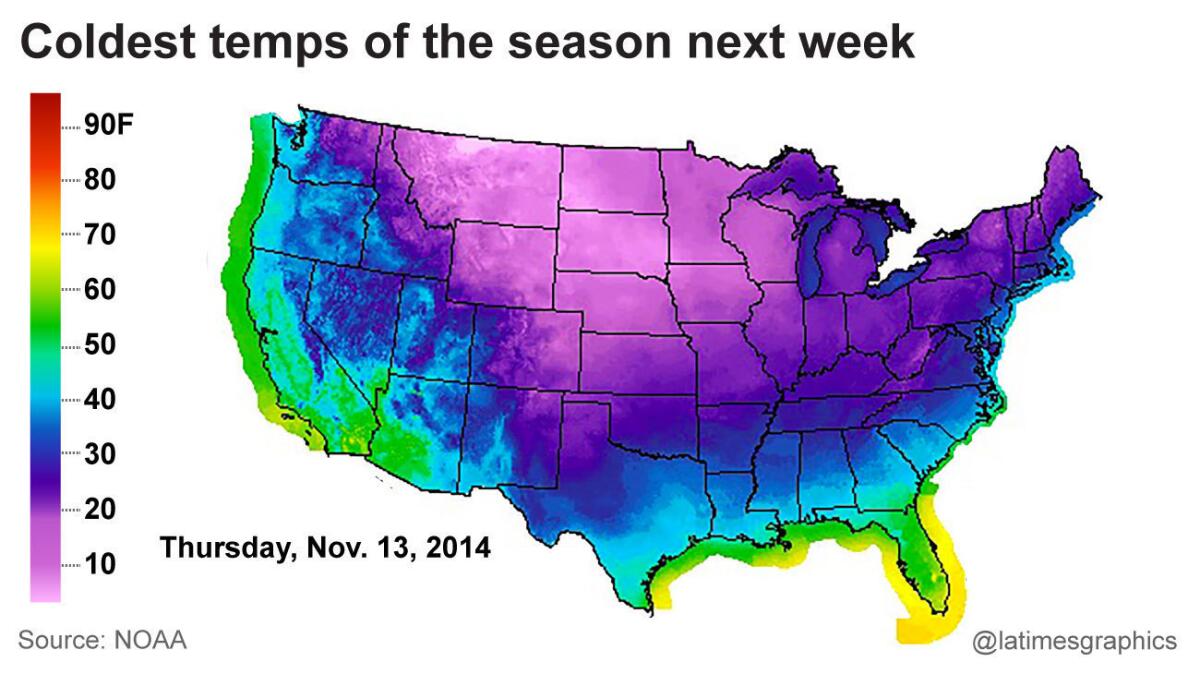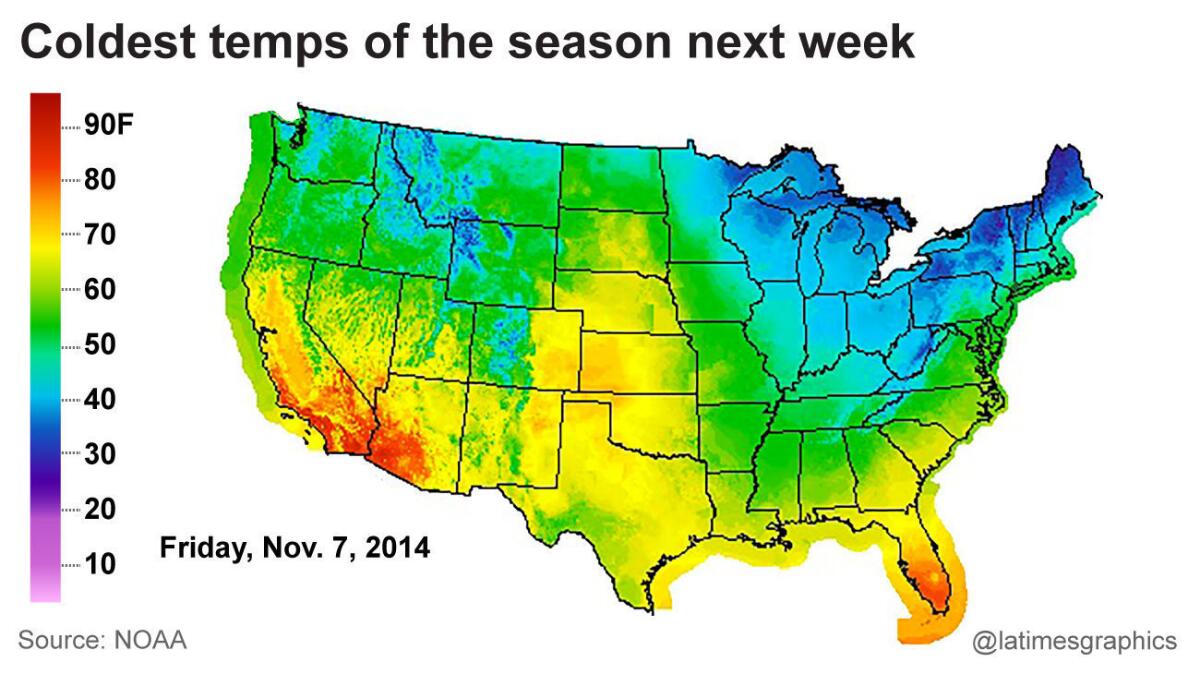Wintry freeze expected to blast two-thirds of U.S. next week
- Share via


(Hover or touch the map to compare with the current map.)
A blast of cold, dry air will blanket two-thirds of the country over the next week, sending temperatures plummeting to as much as 40 degrees below normal in a resurgence of what many have called the polar vortex.
The frigid Arctic jet stream is being pushed southward into the United States by the remains of Super Typhoon Nuri, which is expected to batter Alaska and the Aleutian islands Friday and Saturday with hurricane-force winds and rain. The National Weather Service says it will be the strongest storm to hit the region in decades.

Residents are preparing for 80-100 mph winds this weekend, tying down outdoor furniture and storage containers, according to the Associated Press.
The frigid air is expected to drop down into the upper Midwest on Sunday before moving to the East and Southeast on Tuesday and Wednesday, with temperatures likely to be at or near zero.
The cold temperatures and storm conditions are expected to last through next weekend.
“Two-thirds of the United States is going into the freezer,” says Bill Patzert, a climatologist for NASA’s Jet Propulsion Laboratory in La Cañada Flintridge. “By mid-next week, we’re going to be talking blizzards and near-zero temperatures as far south as Louisiana and Alabama.” Those types of conditions are more commonly seen in January or February, Patzert says, not November.
But, Patzert says, don’t call it the polar vortex just yet. “I’d call it the polar express,” Patzert says, since the cold temperatures are only expected to stick around for about a week.
“The question is going to be whether this is a singular event because of Nuri or if it’s going to be a long-lasting pattern through the winter.”
The past two winters have seen similar air movements, with the original polar cortex bringing similarly icy, snowy conditions to much of the United States but bypassing the West, where it continues to be unseasonably warm and dry.
If this continues, Patzert says, it could have grave implications for California’s ongoing drought.
“If they’re getting blasted by the arctic express in the Midwest and Northeast, in terms of drought relief, that’s bad news for us .... They don’t need another winter like they had last year, and neither do we.”
For more breaking news, follow me @cmaiducSign up for Essential California
The most important California stories and recommendations in your inbox every morning.
You may occasionally receive promotional content from the Los Angeles Times.








